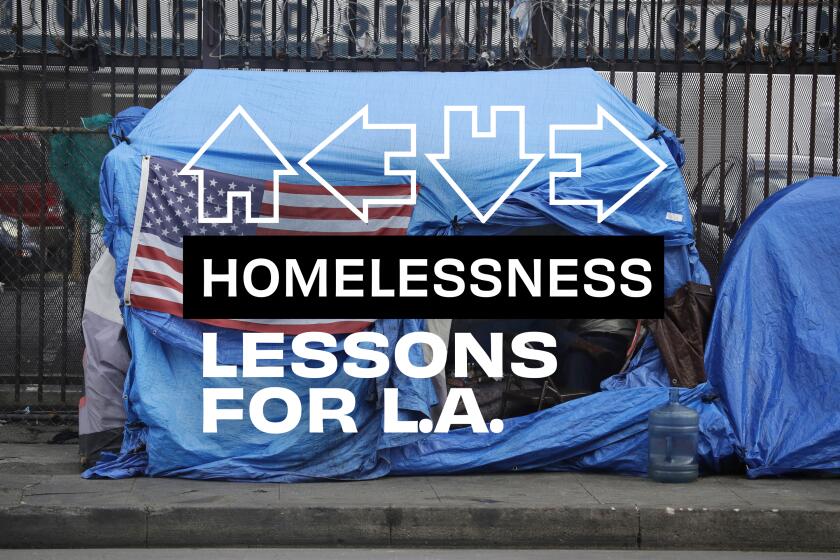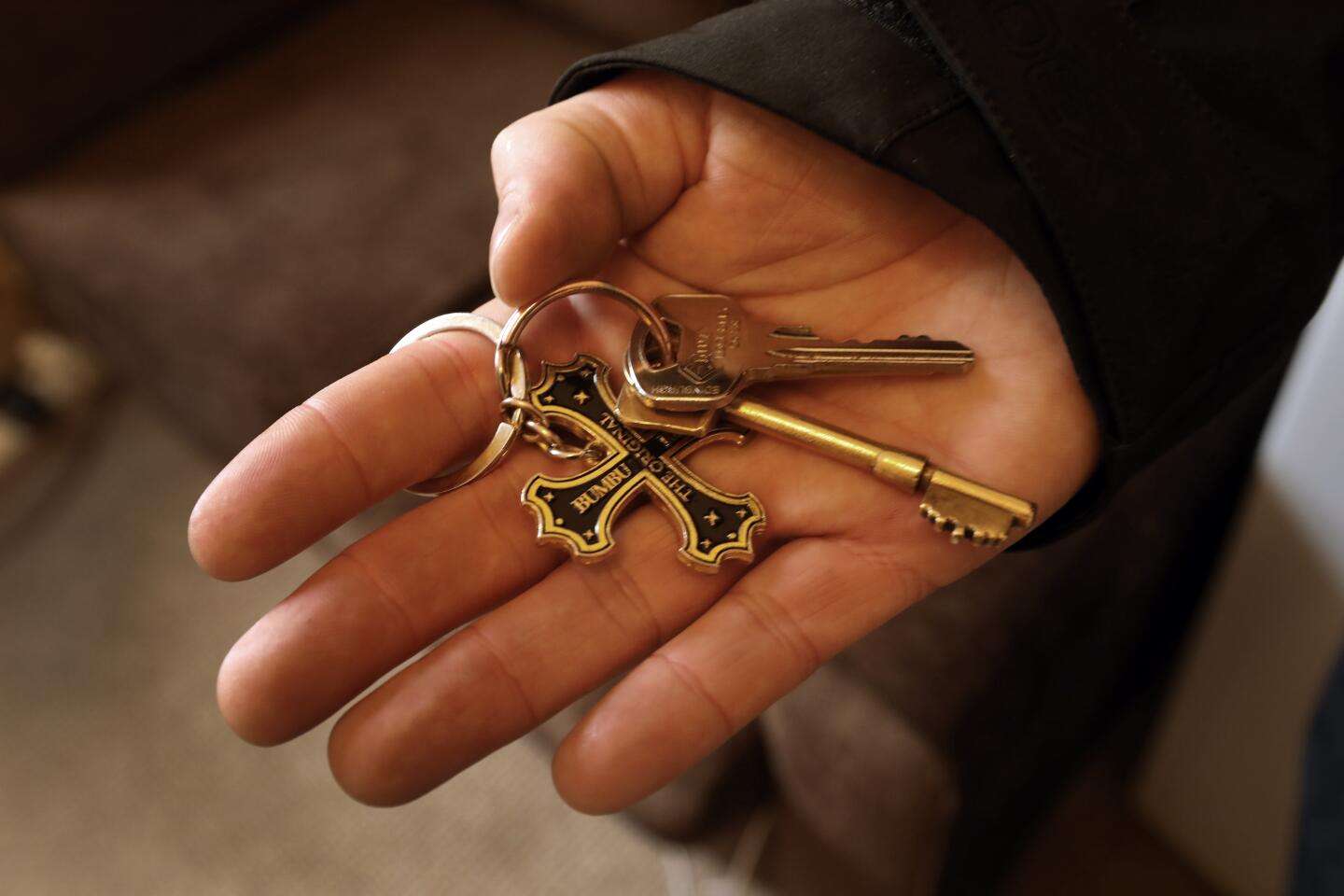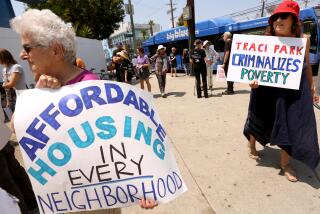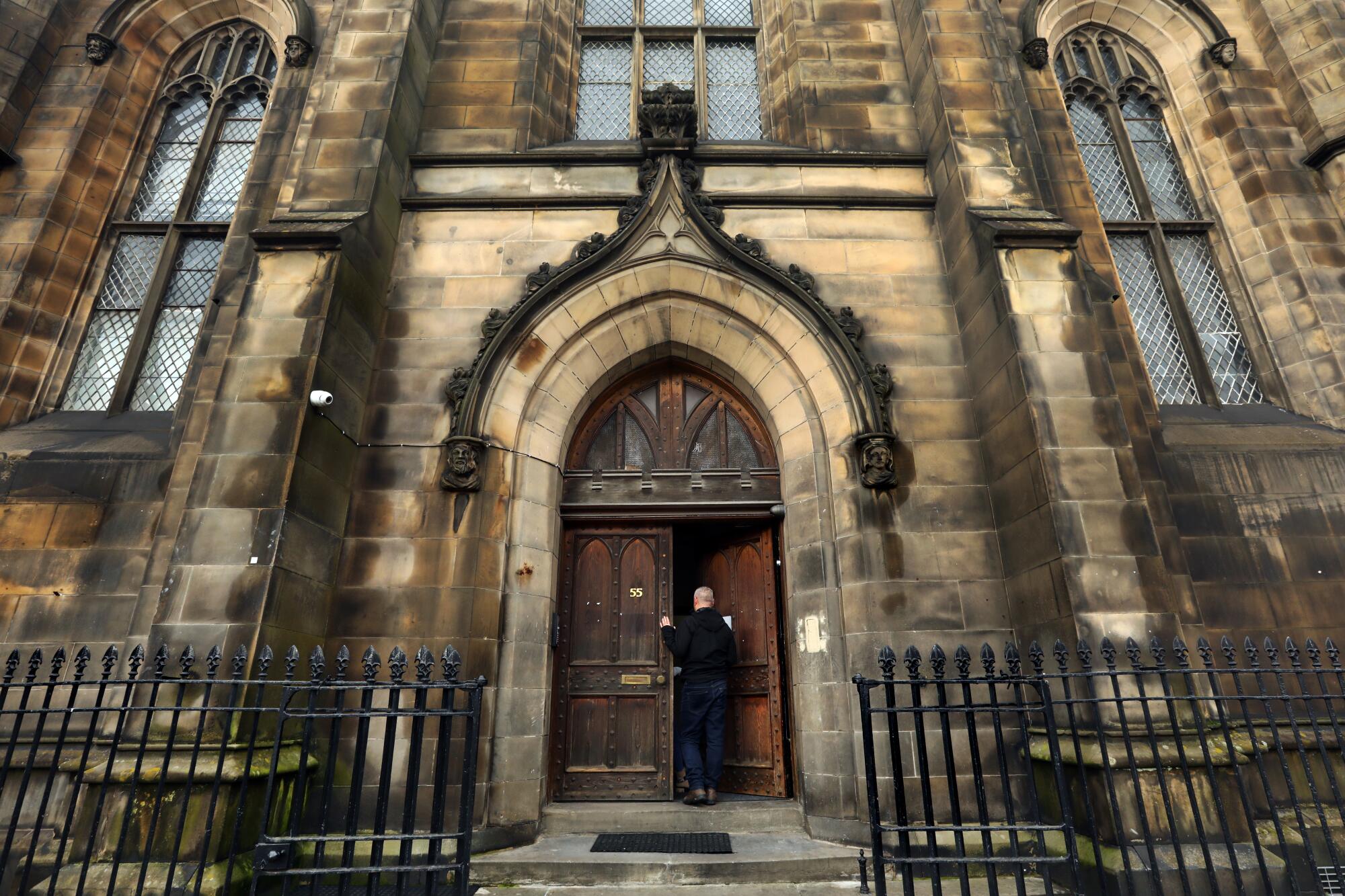
- Share via
EDINBURGH, Scotland — A few days after John Dalton declared himself homeless, the Scottish government moved him into Muirhouse Mansion, a 19th century stone home built to resemble a Gothic castle. From his private bedroom, No. 16, he could see an island monastery in the Firth of Forth, an estuary that drains into the North Sea.
“I thought, ‘Yeah, this is a bit unusual for homeless accommodations,’” Dalton said as he showed off the property on a crisp fall morning.
Not every homeless person in Scotland lives in a castle. But Scotland has what some California politicians and advocates have long sought: a legal right to housing. Because of that policy, the local government here must act quickly to ensure people at risk of becoming homeless find a temporary place to stay — even if that place happens to look like a Harry Potter stage set.
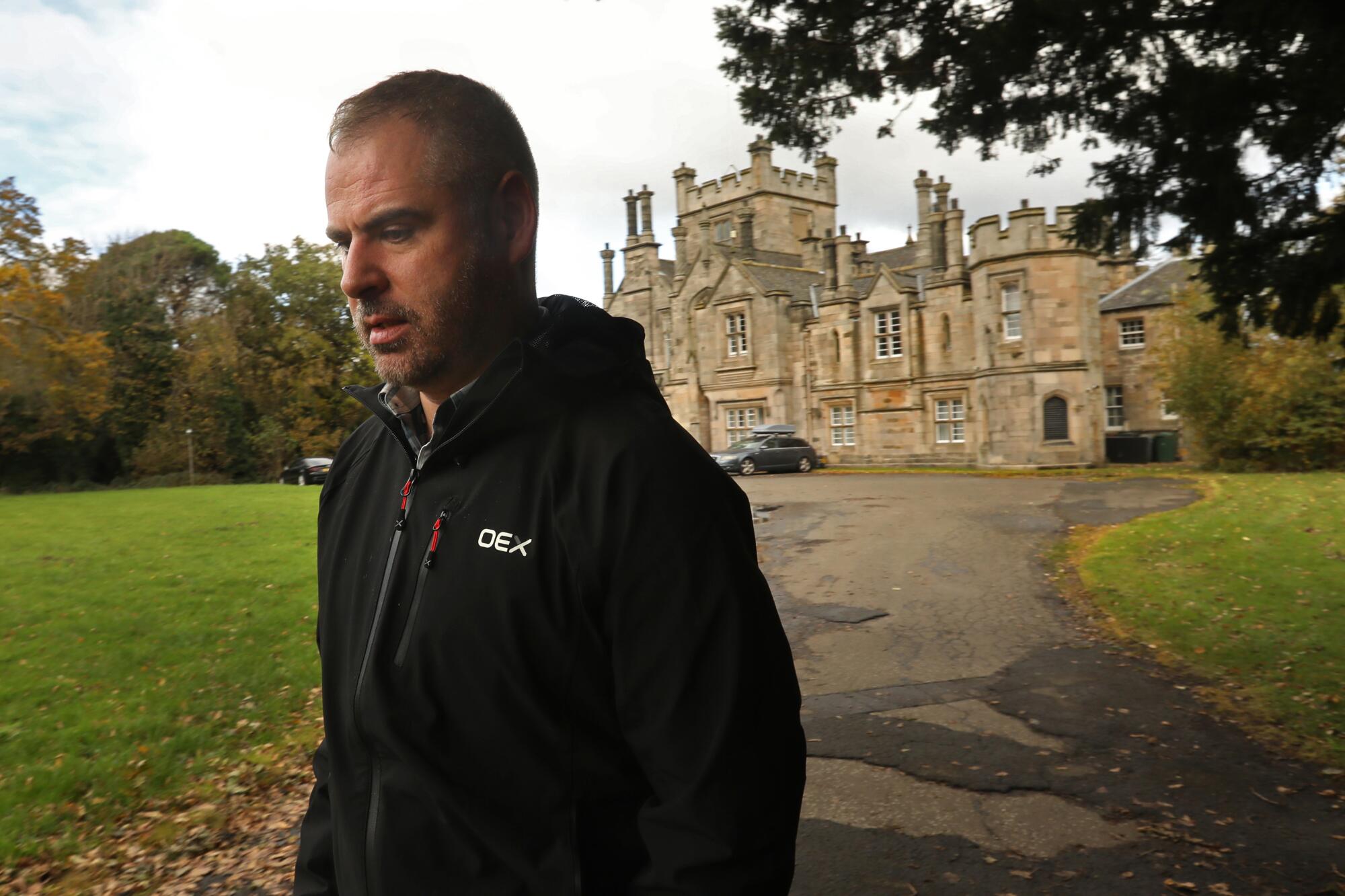
Two and a half years since he lost his job, and then ran out of couches to crash on, Dalton, 39, has yet to find a permanent home. But he has had a warm and safe bed — and even another stint on the grounds of a second castle — and has not spent a single night on the street, or “rough sleeping,” as it’s known here.
Scotland’s guarantee, phased in between 2003 and 2012, is one of the most generous in the world, more comprehensive and durable than the right to short-term shelter in New York, where a 1981 consent decree is under legal and political threat as the city tries to accommodate tens of thousands of newly arriving migrants. (Finland, known for its expansive safety net, includes a right to housing in its constitution.)
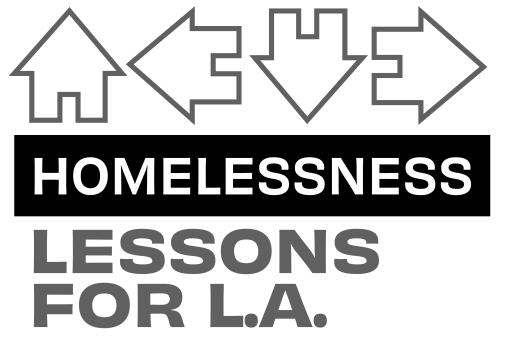
In Scotland, people who meet a broad definition of homelessness get immediate access to short-term shelter and then put on a list for permanent housing, which is usually heavily discounted. Healthcare, a leading cause of debt in the United States, is largely free for everyone in the United Kingdom, as is treatment for the mental health and substance abuse issues that can exacerbate homelessness.
Few people here sleep on the street — about 30 in Glasgow and 40 in Edinburgh on a given night, according to Simon Community Scotland, a leading charity that deploys outreach teams and offers services in both cities. That’s up from recent years when the numbers could often be counted on one or two hands, but still a manageable figure for a pair of cities with a combined population of about 1.2 million people.
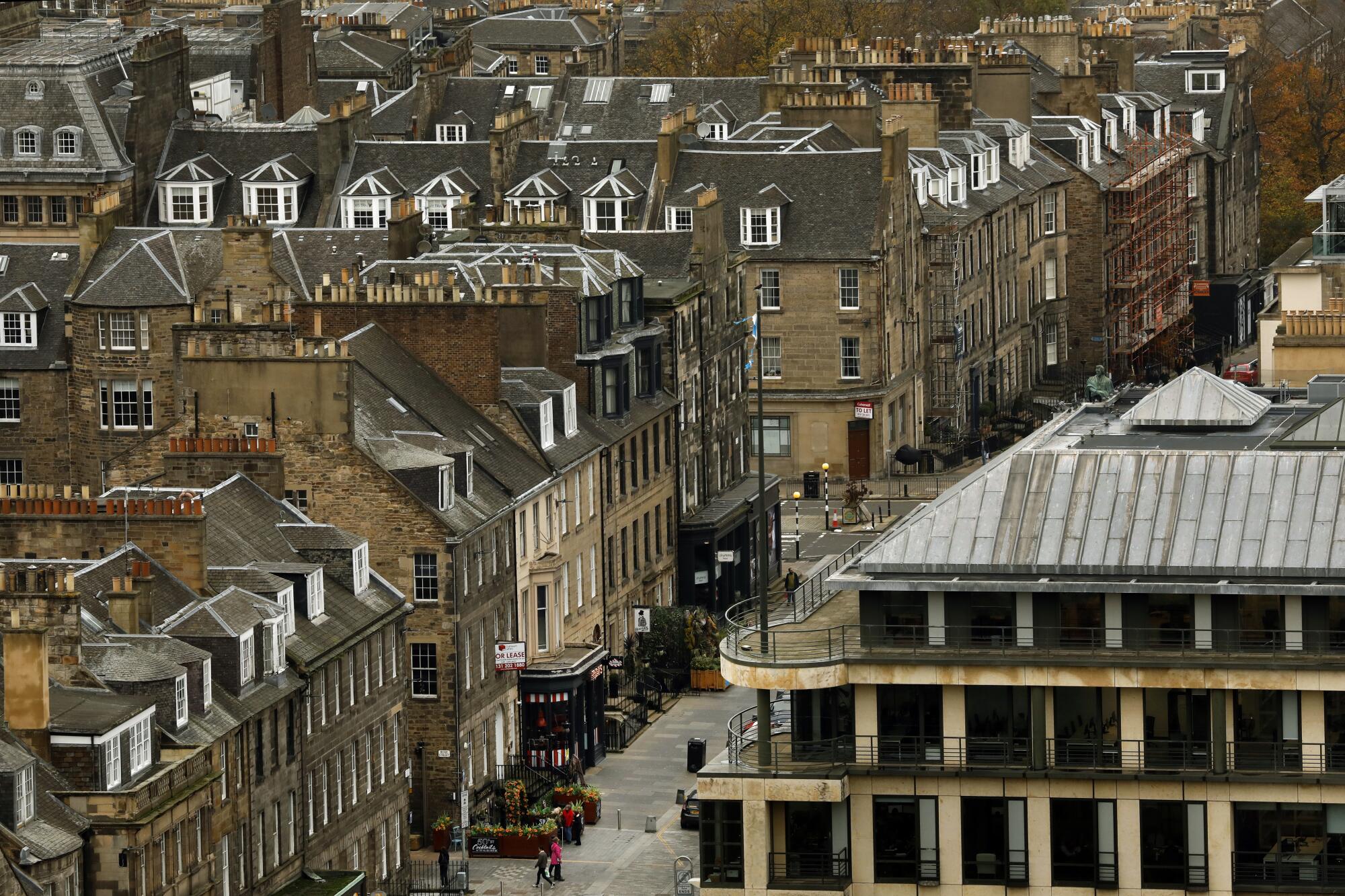
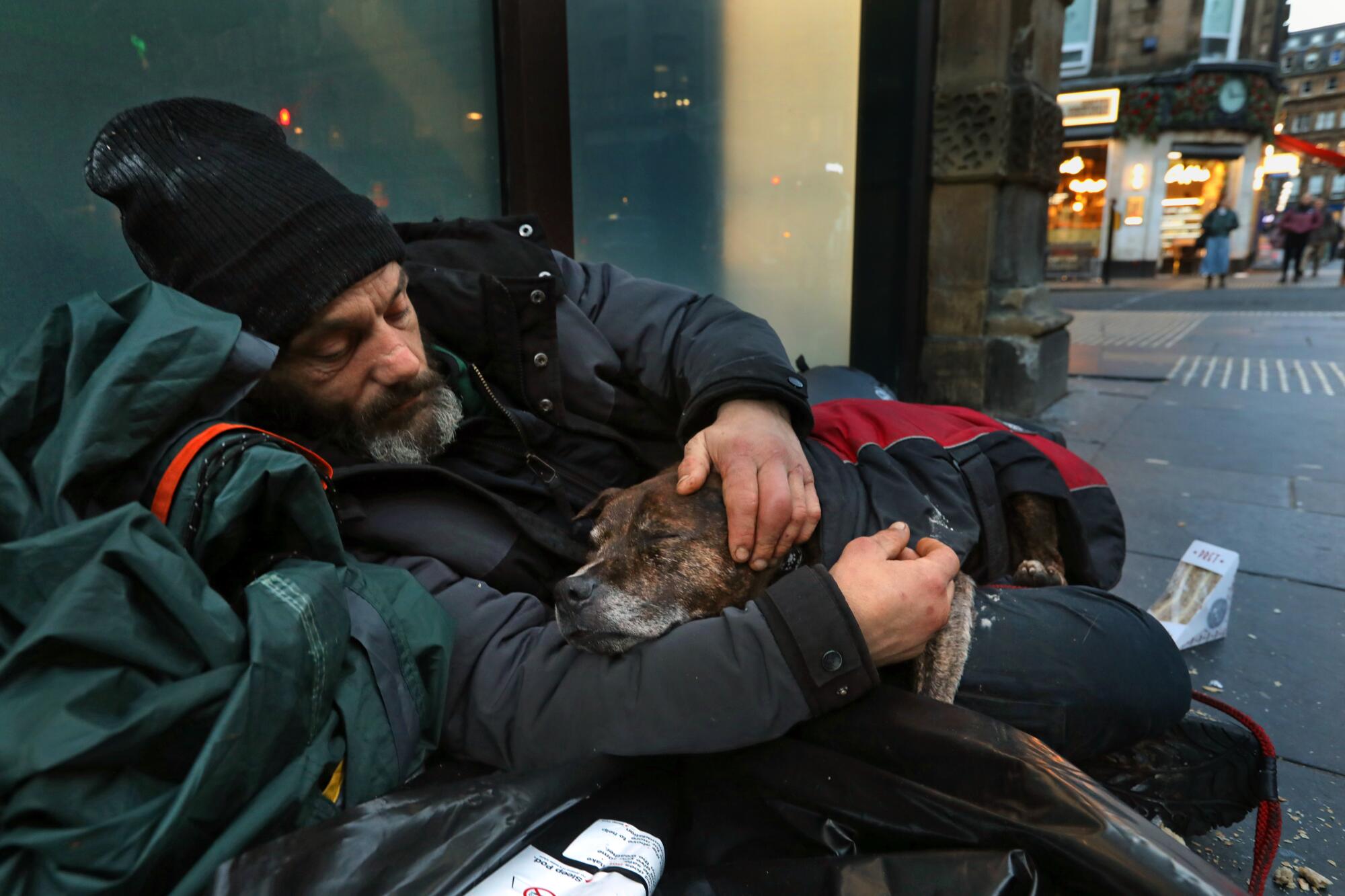
The city of Los Angeles, just over three times as populous, estimates that 46,260 people sleep on its streets on a given night.
Creating a Scottish-style right to a home in California or at the federal level “would send a market signal” to fragmented governments and the private sector that housing, like public education, is a fundamental societal obligation, said Sacramento Mayor Darrell Steinberg, who co-chaired a California homeless task force for Gov. Gavin Newsom.
Why is homelessness so much worse in Los Angeles than in other parts of the country, even as other cities also combat poverty, drug addiction and crime?
“All the systems would be focused in a very different way on ensuring that there was something dignified for everyone,” Steinberg said.
Scotland has that focus. But making sure that citizens have healthcare and housing is costly — the main political obstacle that new entitlements face in the United States. The United Kingdom devotes a large share of its economy to government services, collecting 33.5% of its gross domestic product in taxes, compared with 26.6% collected by federal, state and local governments in the United States, which also dedicates a larger share of its budget to the military.
And even with Scotland’s five-year program underway to spend $4.4 billion more on housing, local governments here, which are responsible for finding accommodations, are failing to keep up with growing demand for permanent houses and apartments, leaving thousands of people languishing for months or years in hotels, hostels and other temporary quarters.
Subscribers get early access to this story
We’re offering L.A. Times subscribers first access to our best journalism. Thank you for your support.
“We get people accommodated, but we’re conscious that — for a lot of people — it’s not the right accommodation. It’s not really a home,” said Susan Aitken, who leads Glasgow’s 85-member City Council.
Permanent social housing, as it’s known here, is desirable and often high quality, and most people who qualify for it never leave for the private market.
Average stays in temporary quarters, which vary in quality from shabby inns to standard apartments, have gone from less than six months in 2017-18 to nearly 7½ months last year.
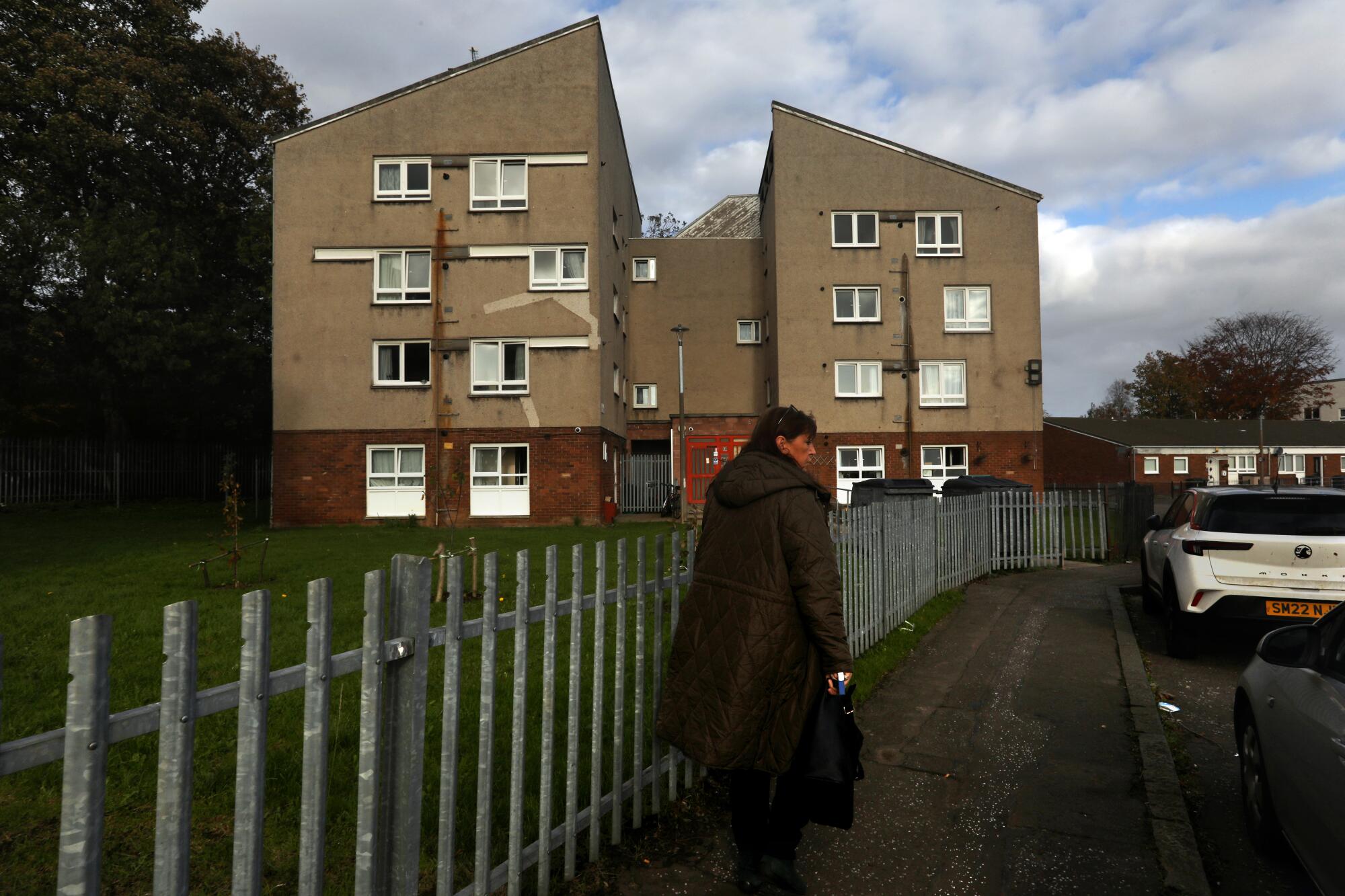
Thousands of people are forced to stay in dwellings the government deems unsuitable — typically because they lack private bathrooms and kitchens or are too far from work or school — for more than the seven-day period allowed under the law, according to local officials.
At the Brigham, an apartment building in Edinburgh designed to house people for a few months, some tenants now stay for several years.
“I’m one of nine children,” said Barbare Laydon, a 66-year-old retired teaching assistant who has spent six months sharing a bathroom and a kitchen with two other Brigham tenants. “I can cope with anything. This is not an ideal situation for me, but I’m hoping to get out.”
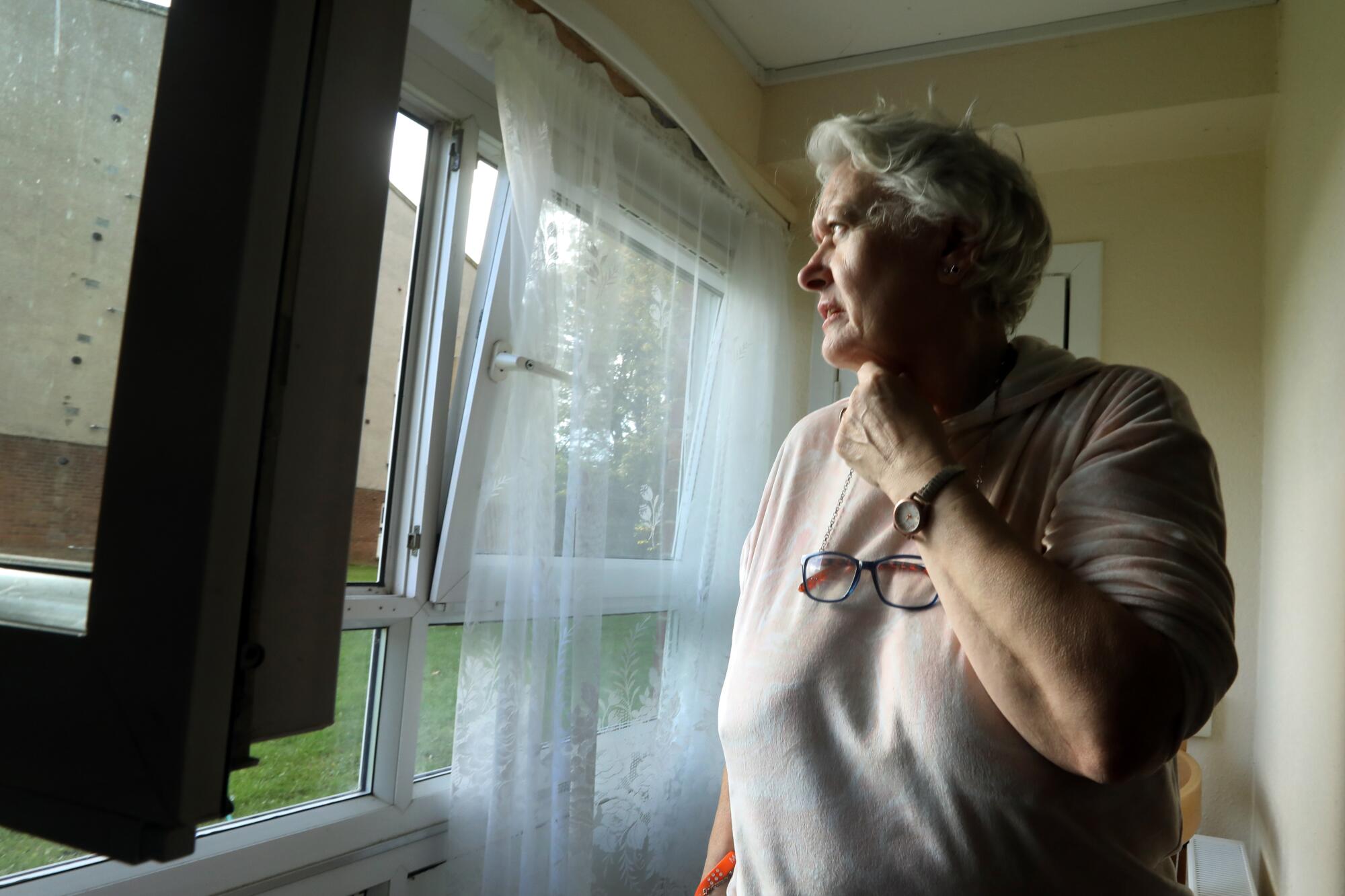
Yet Laydon is unlikely to sleep on the streets.
“In Scotland, homelessness is an indoors problem rather than an outdoors problem,” said Alison Watson, director of Shelter Scotland, a leading advocacy group.
More than 32,000 applicants in Scotland qualified for homeless services, including 16,000 households that included children, in the 2022-23 budget year, the highest number in more than a decade. Most were living with friends or family, facing eviction from private flats, leaving a partner or otherwise sheltered when they sought help.
Only 6% of applicants reported sleeping on the streets in the prior three months.
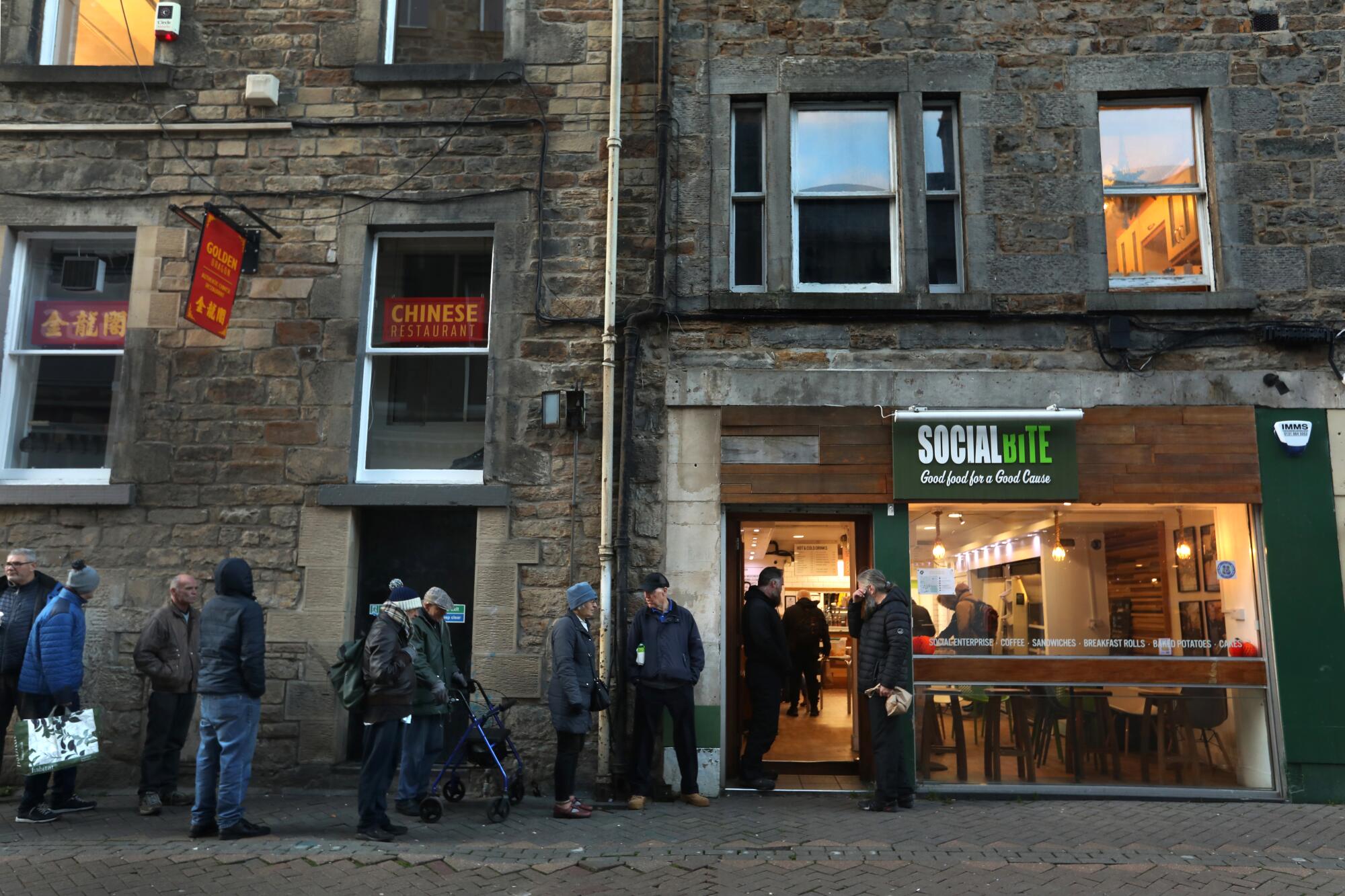
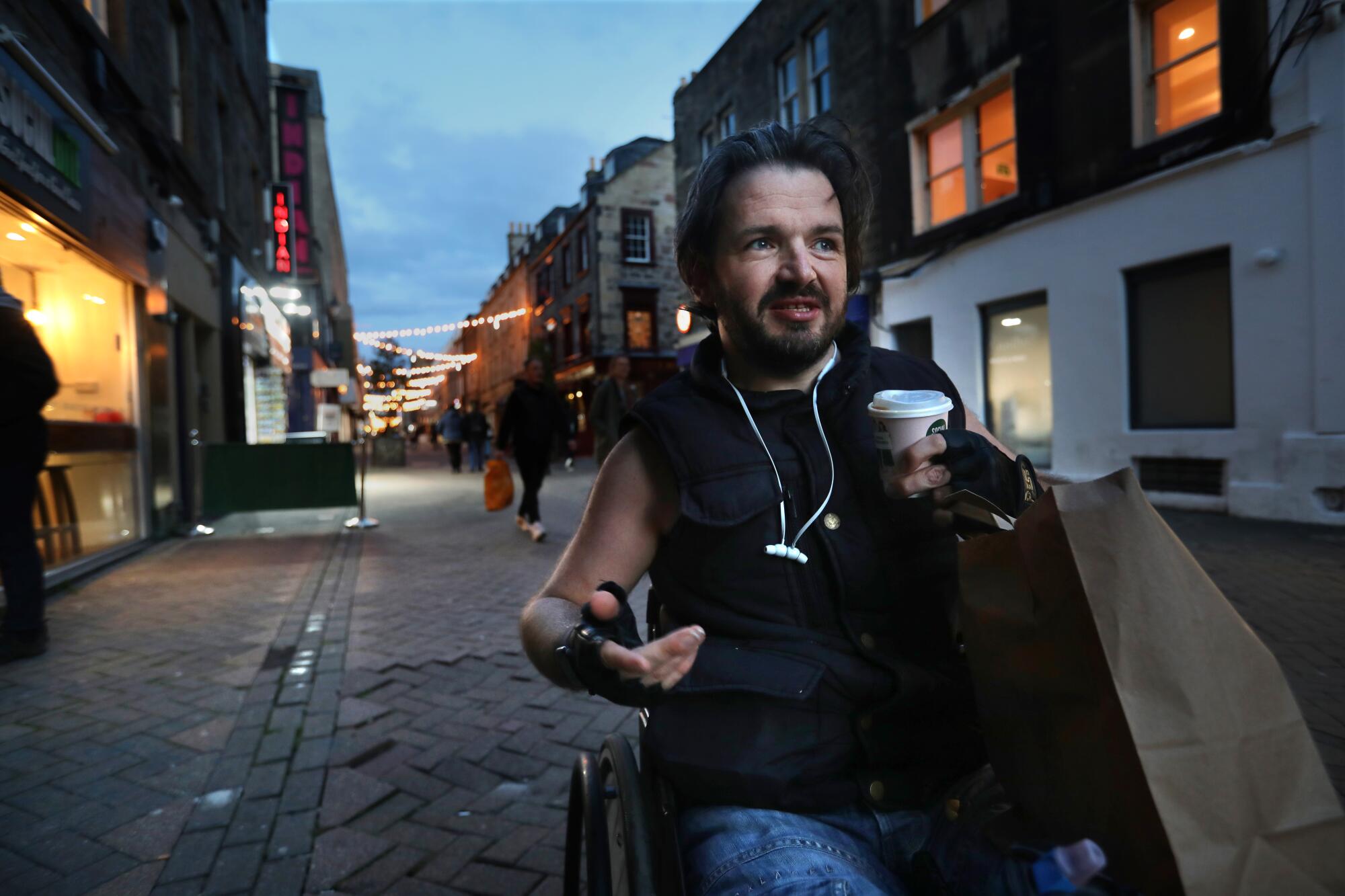
Over several days in Edinburgh and Glasgow in late October and early November, multiple people who asked for money or stood in line at soup kitchens told The Times they were not living on the streets.
Martin Splatt, 37, has lived in the same government-owned house since he was 21, but comes 45 minutes on a train to Edinburgh for services and to see friends. Some of the people in line with him at the soup kitchen sleep on the street, “but most of them don’t,” said Splatt, who has used a wheelchair since he was hit by a car in 1999.
Duncan Mack, 66 and in the same food line, said he spent about four months living on the street while working in construction a few years back and was eventually hospitalized for a problem that required him to have half of his bladder removed. He now lives in a temporary apartment, with his own bedroom and kitchen. But he struggles to pay for things.
On a rainy Wednesday morning, a trickle of people showed up at a service hub in Glasgow run by the Simon charity, a few seeking shelter. Outreach workers scrambled to find them hotels. But some left with plans to sleep on the street, including Martin Benedetti, 55, who stormed away with his pit bull, Tyson, and a bottle of Jamaican liqueur in his pocket.
People with dogs are often the hardest to place because many hotels won’t take them, said Ashley Young, who heads complex services for the charity. But as the number of homeless people rises, charities and city officials are also having more trouble finding hotels for people without dogs. When that happens, Simon’s outreach workers give them a sleeping bag, a foil blanket and an appointment to return the next day.
“Things have been really tough for the last few months,” said Young. “But it feels as if this is just the tip of the iceberg and it’s probably going to get far worse.”
Scotland faces many of the same challenges that have fueled the United States’ — and California’s — homelessness crisis.
Advertised rents in Edinburgh and Glasgow have risen more than 80% in the last decade, to more than $1,800 on average in Edinburgh, according to data from Citylets, an online rental portal. Glasgow serves as one of the U.K.’s largest asylum dispersal centers, meaning about 5,000 people are there awaiting a decision at any given time, Aitken said. Those who qualify for asylum status gain the right to housing immediately.
The country has also taken in thousands of Ukrainians fleeing the Russian invasion.
“Scotland has tried to be welcoming,” said David Bookbinder, director of the Glasgow and West of Scotland Forum of Housing Assns. “You need houses if you’re going to be welcoming people.”
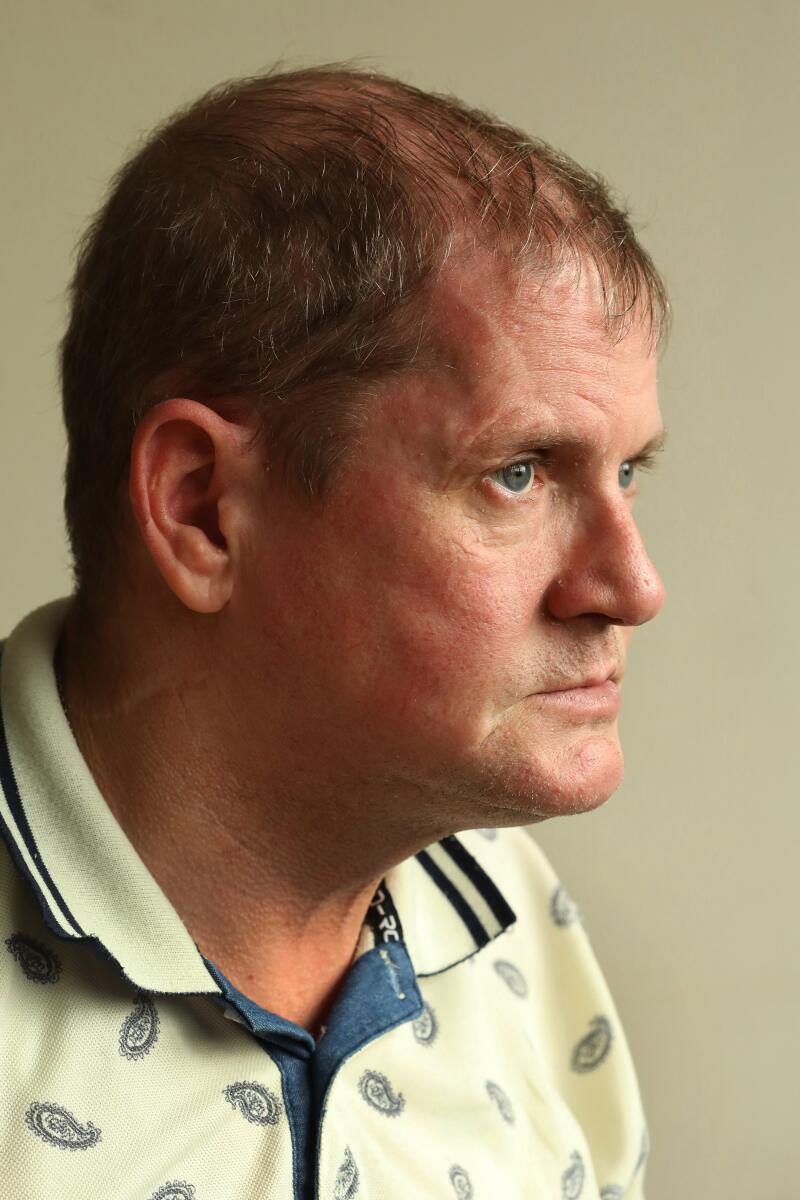
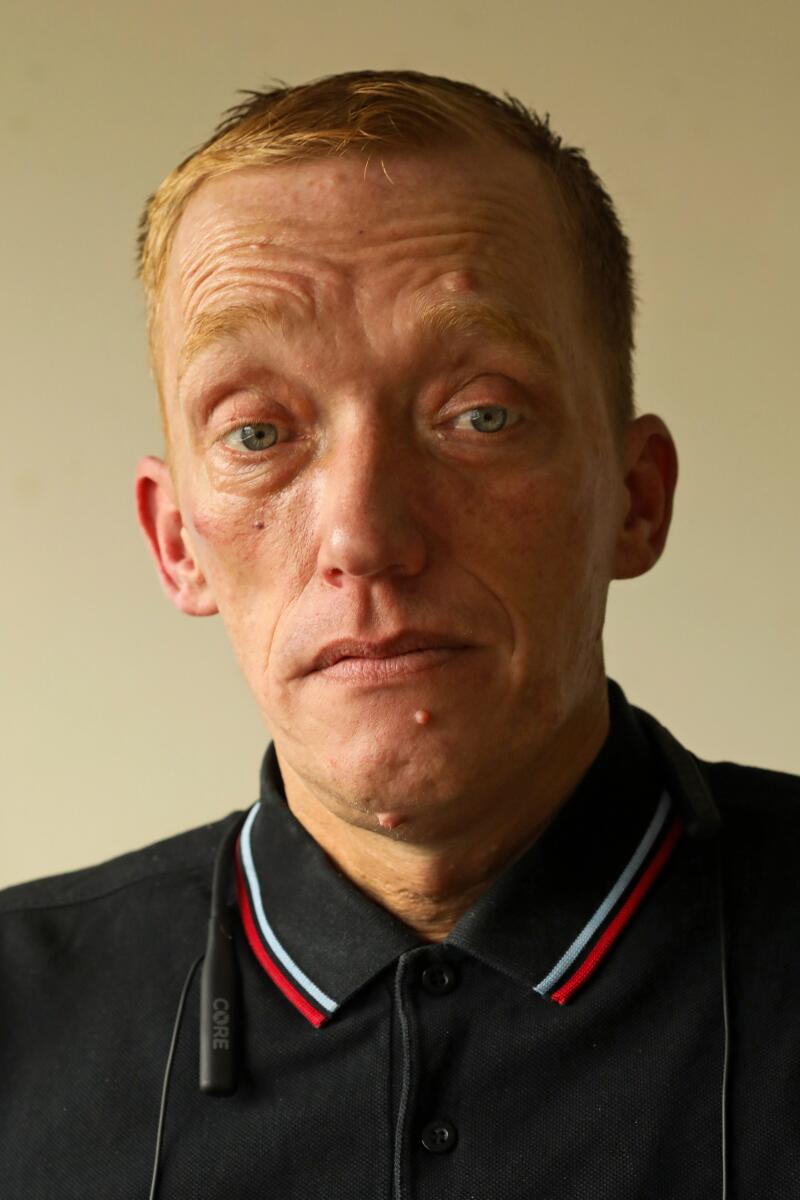
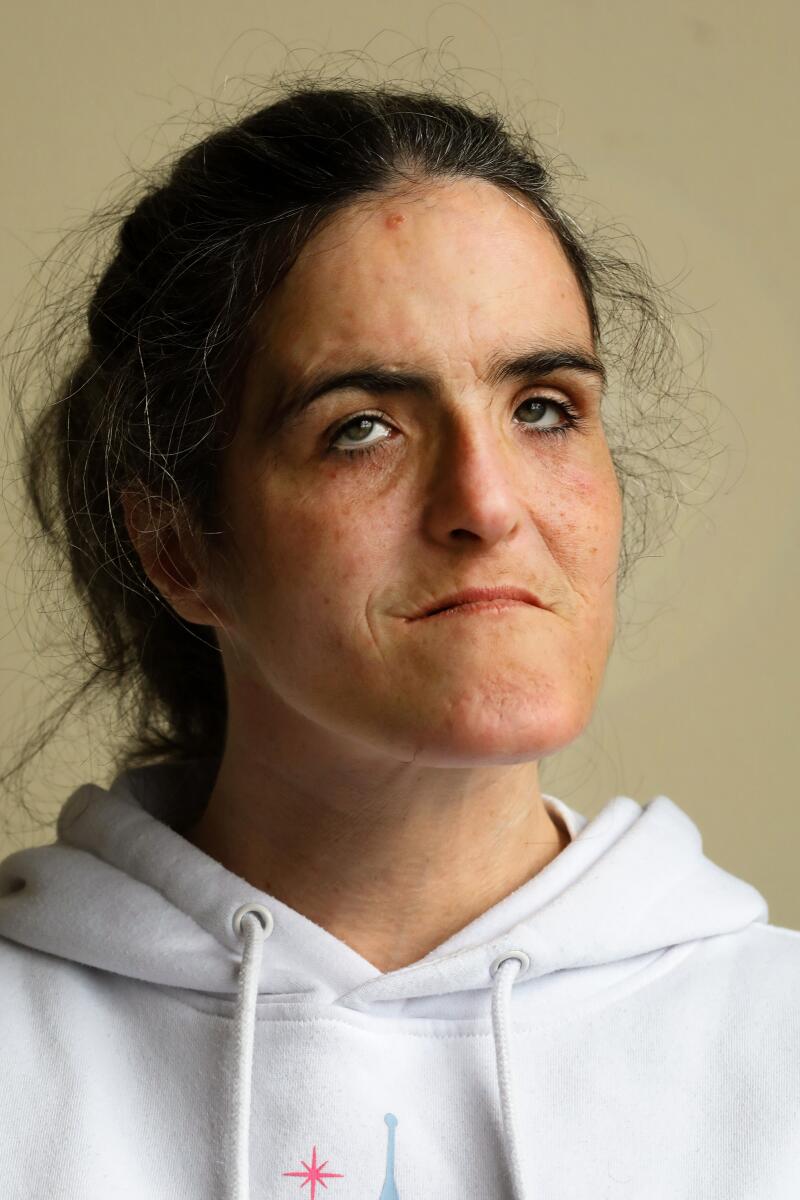
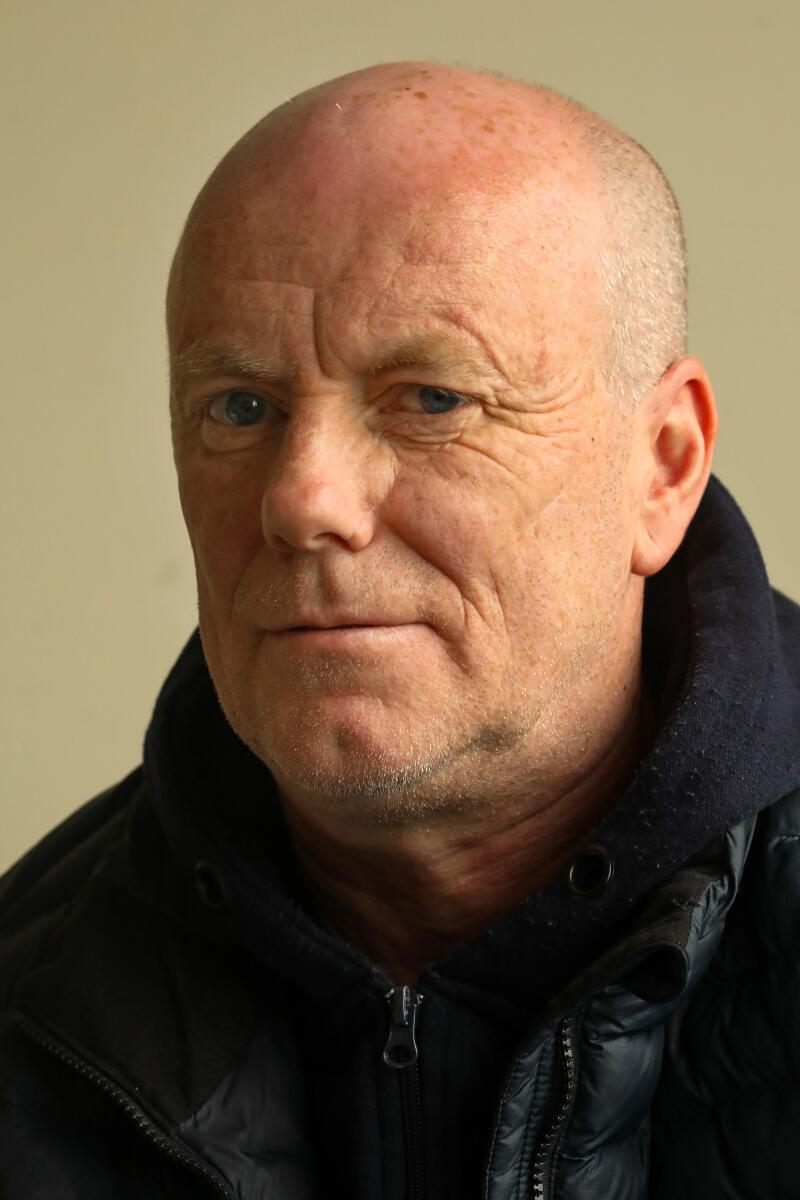
These four residents of Glasgow have all slept on the street during their lives but are now housed. They work part time for Homeless Network Scotland as consultants.
Scotland’s rate of drug-overdose deaths is second only to the United States, according to an analysis this year from the Commonwealth Fund.
California voters strongly support a right to housing, according to a 2021 poll conducted by the Los Angeles Business Council Institute in cooperation with The Times. Although 72% said they approve of such a right, a smaller number, 51%, said they would support new taxes for permanent homeless initiatives, leaving doubt that an enshrined right would attract the two-thirds support needed to pass most ballot initiatives that involve taxes.
Gov. Newsom cited the cost, estimated at more than $10 billion a year, when he vetoed a 2020 bill that would have created a right to housing.
Dalton feels grateful he’s found good places to live. After seven months in the first castle, he moved to a room in a converted historic church — where he would often encounter Spanish-language Harry Potter tours when he walked out the door — and then to another historic house built next to the remains of a medieval castle.
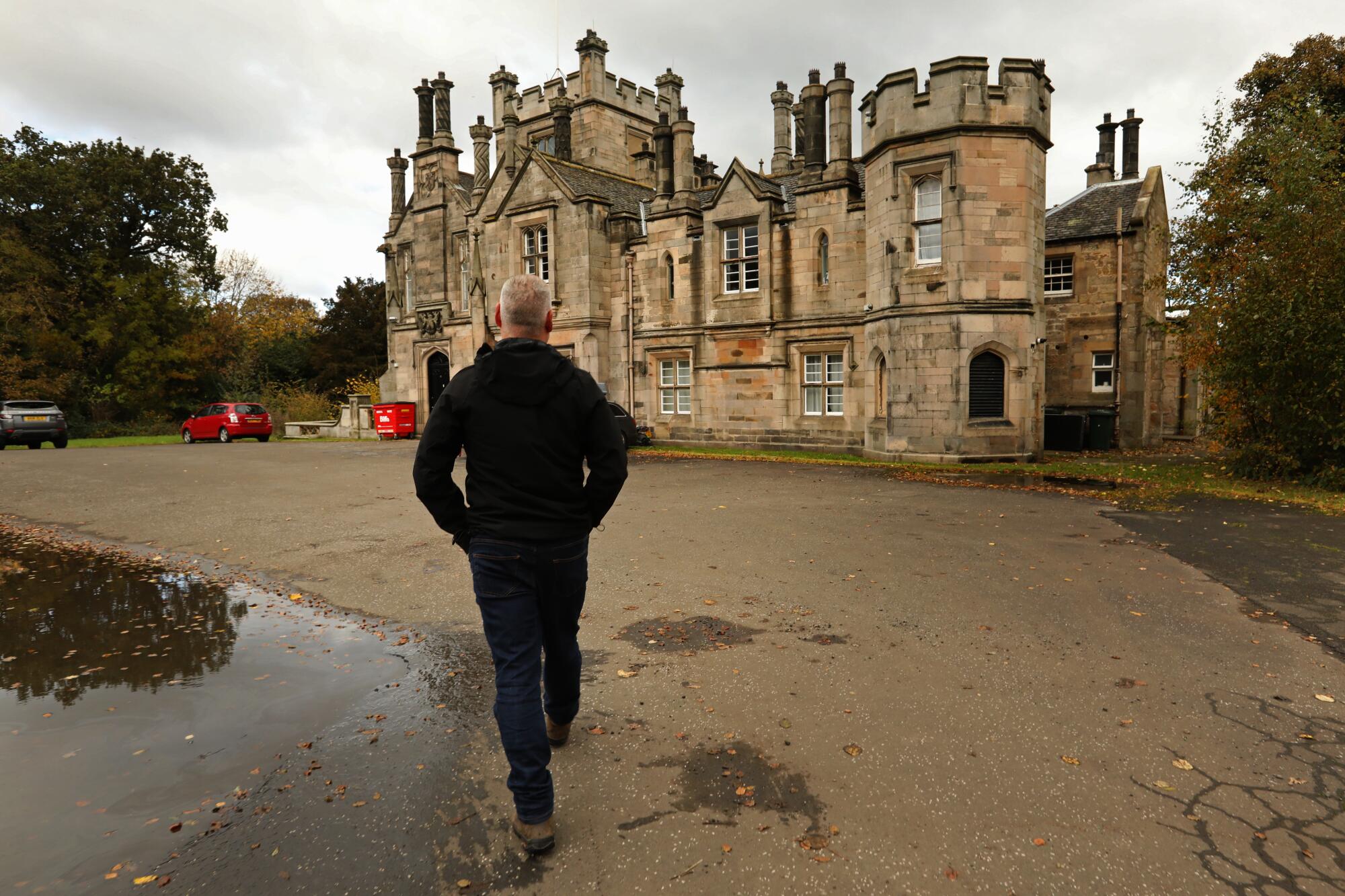
“OK, it’s nice on the outside, but it’s people with a lot of problems in there,” he said.
He felt isolated and rarely spoke to the other tenants, even though he shared kitchens and bathrooms.
He risked losing his room if he stayed out more than three nights in a row or missed his 11 p.m. curfew.
In August, he moved into a one-bedroom apartment of his own, not far from one of the city’s posh neighborhoods. The walk-up atrium is a bit rough, and the white paint is chipping. But inside, he has his own kitchen, a gas fireplace and even a built-in towel warmer in the bathroom.
The place is still considered temporary. But he can have visitors, come and go as he pleases and probably keep it as a permanent home if he proves himself a good tenant.
Dalton works part time as a lived-experience associate for Homeless Network Scotland, a charity. He would like to find full-time work in the homeless world, either in advocacy or maybe giving tours of the city from a homeless perspective.
For now, he gets about $900 a month in benefits, plus a few hundred more from the Homeless Network, along with free rent. He believes the system can work, if you’re savvy enough to navigate it.
“There’s a lot of, like, cradle-to-grave care in Scotland that plays a huge role in people’s lives,” Dalton said.
He’s learned about the tent cities on America’s West Coast through YouTube and the Joe Rogan podcast.
That absolute falling off a cliff you get in Los Angeles doesn’t happen in Scotland, he said.
More to Read
Sign up for This Evening's Big Stories
Catch up on the day with the 7 biggest L.A. Times stories in your inbox every weekday evening.
You may occasionally receive promotional content from the Los Angeles Times.

